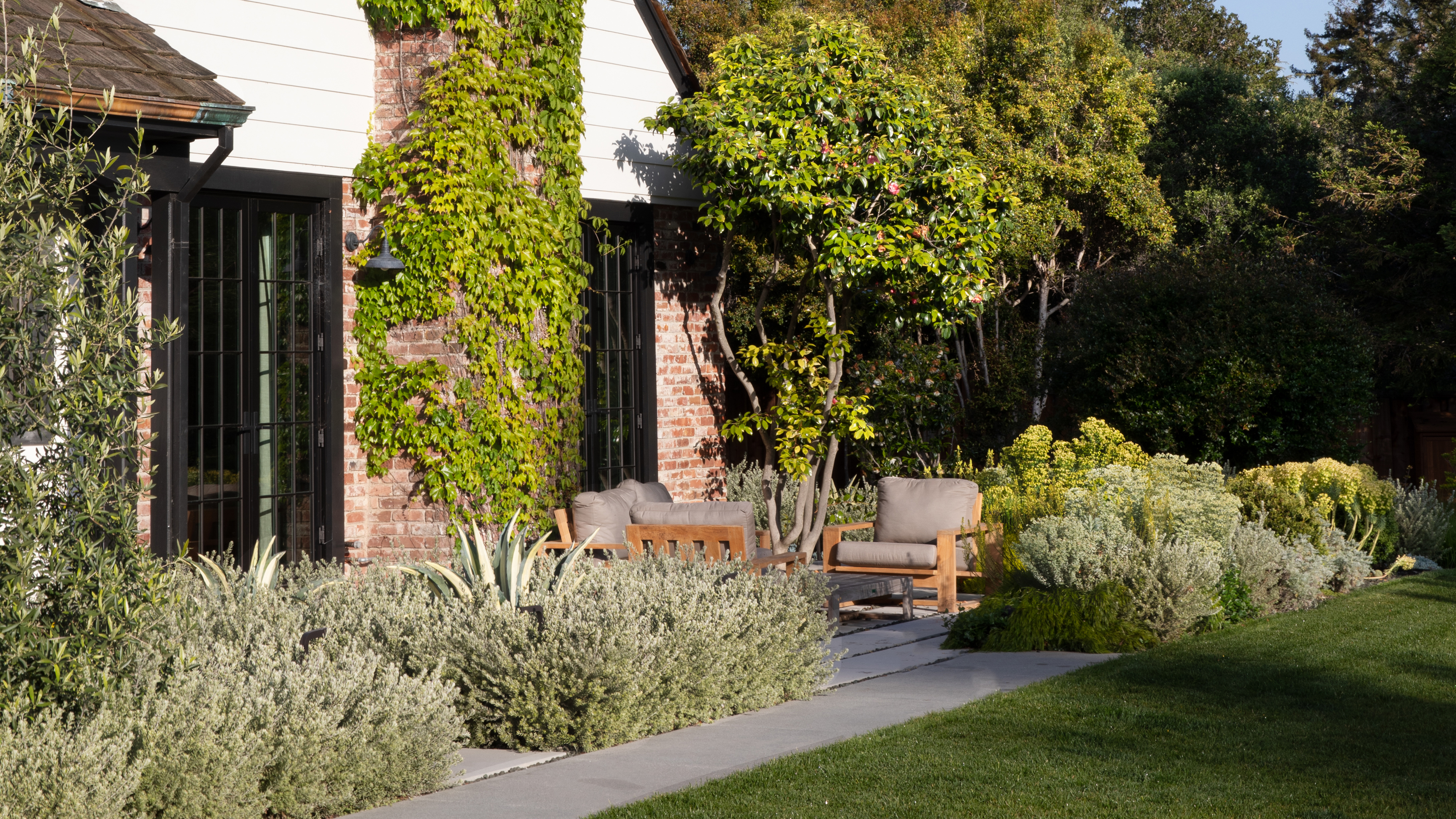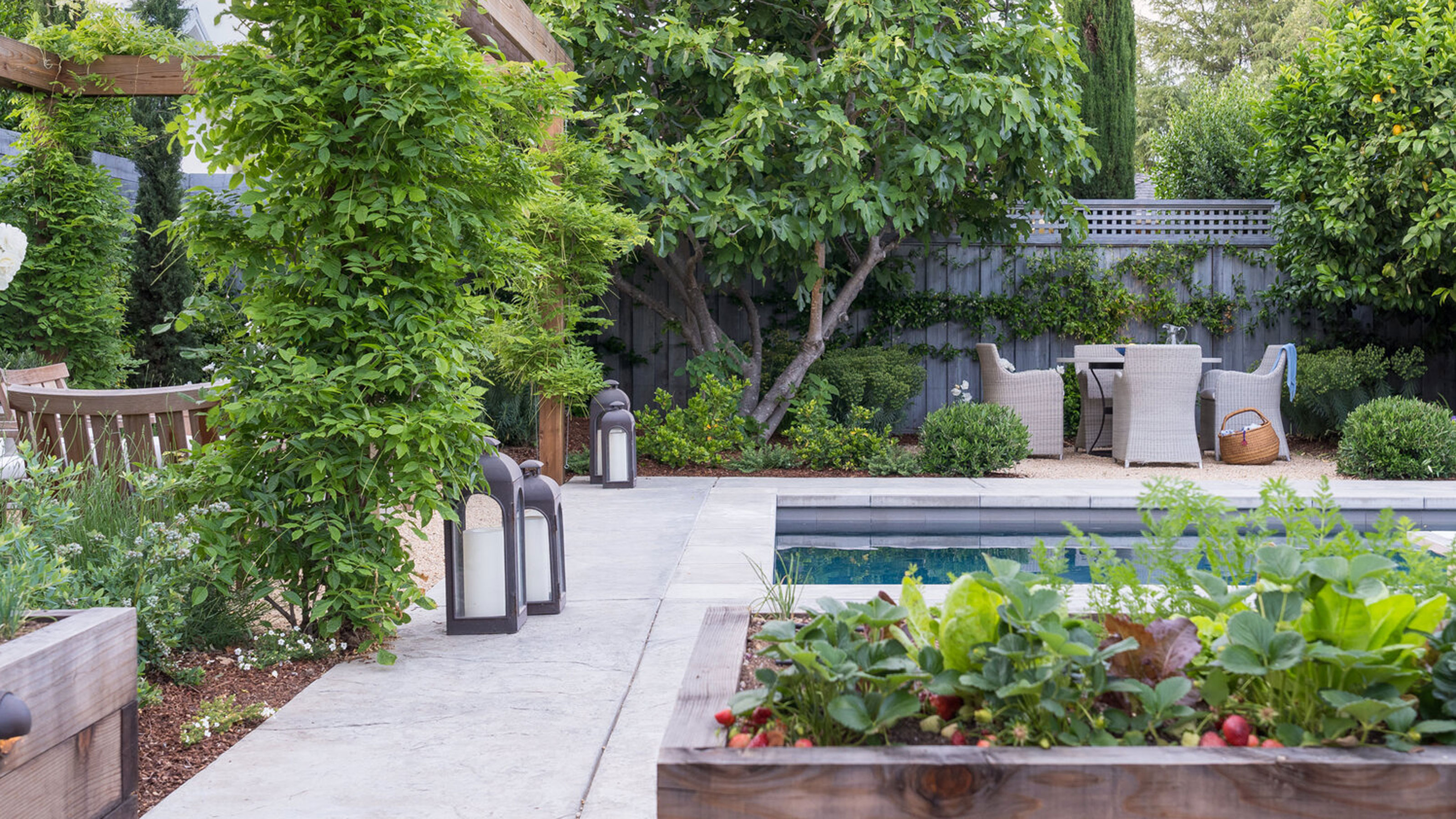These are the 5 jobs gardening experts all do to get their own yards ready for winter – and so should you
Do these five simple gardening tasks now to help prepare your backyard for the colder months and avoid any potential issues getting worse


The Livingetc newsletters are your inside source for what’s shaping interiors now - and what’s next. Discover trend forecasts, smart style ideas, and curated shopping inspiration that brings design to life. Subscribe today and stay ahead of the curve.
You are now subscribed
Your newsletter sign-up was successful
What gardening jobs should you be doing right now? With our unpredictable weather, it can be difficult to know when to start preparing for winter. We all want to give our backyard the attention it deserves to ensure our flowers and shrubs bloom by spring, but the sheer amount of information out there can be overwhelming, especially if you're a beginner.
Luckily, we're here to bring things back to basics. Whether you have a sprawling backyard with a vegetable patch or a simple patio or balcony with a few planters, there are a handful of gardening tasks you should consider carrying out this fall in preparation for the winter months.
As you might expect, these jobs are less about maintaining your plants (which generally stop growing in the winter anyway), and more about surviving the seasonal shift. 'Preparation is key and whilst we have plenty of time for the coming months to prepare for fall/winter, it’s best to act on it now before cold weather makes you want to stay indoors,' explains Johanna Elvidge, head of design at hard landscaping company, Marshalls.
So, if your dedicate your Sunday DIY project to one task this weekend, let it be one of these five ideas. This way, your backyard will be in tip top condition come spring.

Lilith is an expert at following news and trends across the world of interior design. She's committed to helping readers make the best choices in their homes (and gardens) through sharing practical tips and guides. For this piece she spoke with a gardening expert to learn which tasks you ought to be carrying out in your backyard right now.
1. Uproot annual flowers
You don't need to be green-thumbed to know how to uproot garden flowers, and this gardening task is key to a tidier backyard come winter. Unlike perennials, annual flowers don't grow back each year.
Although they can be quite the spectacle in the summer months, introducing color and vibrancy to your pots and borders, once they die they'll be quite the eyesore. Worse still, in wet winter weather, they'll be nothing but a sludgy mess.
'Although no-one wants to up-root these beautiful plants at the end of the season, it’s a job worth doing and reduces the time you need to spend in your garden over winter,' explains Johanna from Marshalls. 'To get the most out of your annual plants once uprooted, add them to your compost pile. And, if digging up your plants doesn’t come naturally to you, consider using only perennials and evergreens, which last longer.'
The Livingetc newsletters are your inside source for what’s shaping interiors now - and what’s next. Discover trend forecasts, smart style ideas, and curated shopping inspiration that brings design to life. Subscribe today and stay ahead of the curve.
2. De-weed your paving
While paving is no doubt a low-maintenance gardening idea, weeds will always find a way to intrude between those gaps. It might be a tedious task, but de-weeding your paving promises a far tidier backyard or path. And, since nothing says unkempt like sprouting weeds, we strongly advise you commit to this one, even if it does seem like a chore.
'As most of us know, weeds are a pain to deal with and if you don’t manage them at the beginning of winter, they will become a bigger problem come springtime,' says Johanna. 'Make sure those weeds come out right from the root, especially where they’ve come up through your paving joints and alongside garden edging.'
We suggest using a weeding tool, like this one from Amazon, to cut out some of the hard work (and give you knees a break). If you are committed to doing things the old-fashioned way, a kneeling pad like this one at Amazon is probably a good idea.
Then there's the option of weed-killer, but you should consider the environmental impacts first. 'Be mindful that it may impact your neighbouring plants growth if you’re spraying close to bordering plants, too,' warns Johanna.

3. Mulch your soil
Mulch is any organic material, such as decaying leaves, bark, or compost, that's used to enrich or insulate soil during winter. It might be easy to overlook it's importance, but mulching is strongly advised if you have shrubs, flowers or bulbs that are especially susceptible to frost.
Not only does mulch help to retain moisture in the soil and prevent damage from frost, but it also suppresses weeds, too. You can purchase bags of mulch (like this bark mulch from Amazon) from a store, or make your own from plant clippings - it's a genius way to use dead leaves.
'Mulching can protect your plants during winter, and is a good eco-friendly gardening method if you choose the right materials,' Johanna notes. 'Covering your garden beds with a thicker organic material such as mulch or wood chippings can help prevent plants from freezing whist reducing soil erosion from rainfall.'
4. Cover your yard furniture before the first frost
You might have done this one already, but covering your yard furniture before regular frosts set in will help to preserve it, especially if it's made of wood. The chances are you're not eating alfresco anymore anyway, so covering your best outdoor furniture with tarp or storing it in the shed will keep it in perfect condition come spring.
As Johanna notes: 'The colder seasons won’t treat your garden furniture so kindly as dampness and wet spells cause potential rust and mould. As you won’t be needing them so often, it is best to store garden furniture pieces in the shed or garage. If this isn’t possible, tough waterproof sheet coverings can be securely fixed around them, and cushions can be put away in a garage or shed in waterproof bags.'

5. Blow or sweep your leaves
There's no denying the beauty of fall and its spectacle of red, orange and brown leaves, but once they've found their way to the ground, you'll want to sweep them up before they rot.
'Blow or sweep your driveway, patio and walkways on a regular basis throughout the fall and winter,' Johanna encourages. 'Condensation (dew) is caused by the temperature difference between day and night, and left sitting too long mixed with colorful leaves, the surface of your pavers can become stained.'
Although a rake or broom will be perfectly suitable for the job, a smart gardening alternative is a leaf blower like this one from Vaclife, available at Amazon.

Lilith Hudson is a freelance writer and regular contributor to Livingetc. She holds an MA in Magazine Journalism from City, University of London, and has written for various titles including Homes & Gardens, House Beautiful, Advnture, the Saturday Times Magazine, Evening Standard, DJ Mag, Metro, and The Simple Things Magazine.
Prior to going freelance, Lilith was the News and Trends Editor at Livingetc. It was a role that helped her develop a keen eye for spotting all the latest micro-trends, interior hacks, and viral decor must-haves you need in your home. With a constant ear to the ground on the design scene, she's ahead of the curve when it comes to the latest color that's sweeping interiors or the hot new style to decorate our homes.